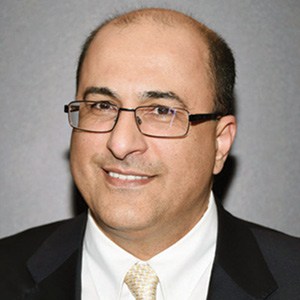Ambassador Ido Aharoni, Israel’s longest serving consul-general in New York, overseeing the operations of the Jewish State’s largest diplomatic mission around the globe, will be in Tidewater as part of Israel Today.
Israel Today: Wednesday, May 8, 7:30 pm, Ohef Sholom Temple
FREE and open to the community with RSVP
Jewish News: What inspired you to dedicate your life and career to the people and state of Israel—the place where you grew up?
Ido Aharoni: My decision to join the civil service, first working for state-run television and then for the foreign service, was more a reflection of the spirit of that time in Israel’s history rather than a conscious decision. Most of the people around me did the same, certainly my family. Also, in Israel, where military service is mandatory, people largely have a favorable view of the “system,” whether it’s the military or the diplomatic service.
JN: As a member of Israel’s Foreign Service for 25 years, working alongside many prominent Israeli politicians, was there a specific moment/person/experience that shaped or defined your view of Israel and its position in the global community?
IA: My epiphany occurred half-way into my career. It was when we completed a set of studies in the USA looking at how people feel about Israel, rather than examining what they think about Israel’s actions. What we discovered, which is now commonplace, is that humans can live perfectly fine with a disconnect between the rational and the emotional. They can agree with your policies, but dislike you. They can disagree with you, and yet be very attracted to you. Israel never considered this human complexity and nor did most Jewish advocacy groups. It means that diplomacy is not a zero-sum game and that one cannot “win” in a relationship. The purpose of relationships cannot be winning. It is something that you build and nurture. That’s what we discovered about Israel back in 2003: we were better known than liked. The task of making Israel more likable and attractive, became my life-mission.
JN: How have you found that other countries look at Israel?
IA: I am often invited by cities and governments to provide advice precisely because Israel is being viewed as a success story. Obviously the dramatic change that occurred in the perception of Israel is a result of many factors, among them the long-term impact of 9/11 and the rise of Jihadism, the rise of the internet, connectivity, the information revolution and participatory culture, Israel’s own performance—most notably the decision to actively support the hi-tech eco-system, which was made over four decades ago—a variety of Israel-centered experiential programs, such as Birthright, and last, but not least, the strength of Israel’s creative spirit which impacts Hollywood, the culinary world, and so much more.
As early as late 2002, while serving in New York, I began urging colleagues in the organized Jewish world and in the Israeli government to switch our marketing strategy and adopt a new approach; broadening the conversation so that it reflects Israel’s relative advantages rather than its deficiencies. Today, you see more and more evidence that Israel is being branded daily as a hub of creativity and a source of inspiration by its own people, through social media and other individualized channels.
JN: What can people do to support Israel and promote a positive international opinion?
IA: The most important thing is to engage in a long-term celebration of Israel’s assets and qualities. No place in the world wants to be known for its problems, and Israel is no exception. In practical terms, it means to experience Israel, to share Israel with local and national influencers, to engage in Israel-related activities that promote trade, commerce, culture, tourism, and exchange programs. The goal is to create a positive emotional tie with Israel and the beauty is that technology allows people to experience Israel even if they cannot afford to travel.
JN: You served as an Infantry Company Commander during the first Lebanon War, in which 657 Israeli soldiers lost their lives and nearly 4,000 Israeli soldiers were wounded. How can you explain the stark transition from Yom Hazikaron, a day of mourning, to Yom Haatzmaut, a day of celebrations?
IA: The drastic shift from grief to jubilation is meant to remind us of the tremendous price that we pay for our independence. I think that is a critically important decision that shapes the memory of a nation. Sometimes we need symbolism in our lives and this is a powerful reminder that freedom came to our people at an unbearable cost.

